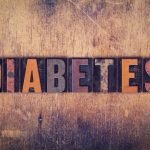Fecal Microbiota Transplantation for ICI-Associated Colitis
Node Smith, ND
A recent paper describes the first use of using fecal microbiota transplantation (FMT) to successfully treat those with severe immune checkpoint inhibitor (ICI) associated colitis. This form of colitis is a common side effect of immunotherapy.
Fecal Microbiota Transplantation (FMT)
FMT takes gut bacteria from healthy donors and transplants it in the colon of the patient. The therapy is currently only approved for the treatment of Clostridium difficile infections, though it has been suggested for use in other conditions such as colitis, and inflammatory bowel disease.
The research was led by by Yinghong Wang, M.D., Ph.D., assistant professor of Gastroenterology, Hepatology & Nutrition and director of Medication Induced Colitis and Enteritis, was published in Nature Medicine.
‘Resolution of colitis confirmed clinically and endoscopically post FMT treatment’
“The resolution of colitis in these patients can be confirmed clinically and endoscopically after FMT treatment,” said Wang. “Based on these results, this should be evaluated even as a first-line therapy for ICI-associated colitis because it’s safe, quick, and the effect is durable – from one treatment.”
ICIs help restore immune system function
ICIs help restore immune system function to attack cancer, and have been effective in the treatment of several types of cancer. However, the therapy is often responsible for severe immune-related toxicities. Colitis – inflammation of the colon – occurs in almost 40 percent of patients. If the colitis is severe enough, patients must stop ICI treatment until the colitis is in remission.
Research conducted on 2 patients undergoing FMT as an alternative for refractory ICI-associated colitis
The research is on two patients undergoing FMT as an alternative for refractory ICI-associated colitis. Both patients had complete resolution of colitis following the treatment, the first patient within two weeks following a single treatment, and the second patient soon after a second treatment. Endoscopic examination confirmed improvements in inflammation and ulcerations including a decrease in inflammatory immune cells.
 Node Smith, ND, is a naturopathic physician in Portland, OR and associate editor for NDNR. He has been instrumental in maintaining a firm connection to the philosophy and heritage of naturopathic medicine among the next generation of docs. He helped found the first multi-generational experiential retreat, which brings elders, alumni, and students together for a weekend camp-out where naturopathic medicine and medical philosophy are experienced in nature. Four years ago he helped found the non-profit, Association for Naturopathic ReVitalization (ANR), for which he serves as the board chairman. ANR has a mission to inspire health practitioners to embody the naturopathic principles through experiential education. Node also has a firm belief that the next era of naturopathic medicine will see a resurgence of in-patient facilities which use fasting, earthing, hydrotherapy and homeopathy to bring people back from chronic diseases of modern living; he is involved in numerous conversations and projects to bring about this vision.
Node Smith, ND, is a naturopathic physician in Portland, OR and associate editor for NDNR. He has been instrumental in maintaining a firm connection to the philosophy and heritage of naturopathic medicine among the next generation of docs. He helped found the first multi-generational experiential retreat, which brings elders, alumni, and students together for a weekend camp-out where naturopathic medicine and medical philosophy are experienced in nature. Four years ago he helped found the non-profit, Association for Naturopathic ReVitalization (ANR), for which he serves as the board chairman. ANR has a mission to inspire health practitioners to embody the naturopathic principles through experiential education. Node also has a firm belief that the next era of naturopathic medicine will see a resurgence of in-patient facilities which use fasting, earthing, hydrotherapy and homeopathy to bring people back from chronic diseases of modern living; he is involved in numerous conversations and projects to bring about this vision.









